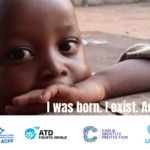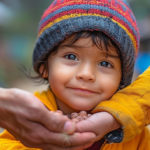
Recent European Court of Human Rights sentences in cases of surrogacy, focused on identity and parentage
Under Danish law, adoption is prohibited in cases where payment is made to the person who consents to the adoption. In this context, in the case of K.K. and Others v Denmark, the European Court of Human Rights (ECHR) decided that there had been a violation of the right to respect for the private lives (Art. 8) of the two applicant children, as the Danish authorities had failed to strike a balance between the interests of the children and the societal interests in limiting the negative effects of commercial surrogacy. Indeed, the lack of a legally recognised parent-child relationship ‘had a negative impact on the children’s right to respect for their private life, in particular because it placed them in a position of legal uncertainty regarding their identity within society’.
Similarly, in D.B. and Others v Switzerland, the ECHR held that there had been a violation of Article 8 as the country had ‘overstepped its margin of appreciation by not making timely legislative provision for such a possibility’. Indeed, at the time of the surrogacy arrangement of the child, domestic law had afforded the applicants no possibility of recognition of the parent-child relationship between the intended parent (in a registered partnership) and the child. At the time, adoption had been open to married couples only, to the exclusion of those in registered partnerships (this was amended in 2018). The Court therefore held that for the Swiss authorities to withhold recognition of the lawfully issued foreign birth certificate in so far as it concerned the parent-child relationship between the intended father and the child born through surrogacy in the United States, without providing for alternative means of recognising that relationship, had not been in the best interests of the child.
While it is welcome that both decisions call for stronger certainty in the identity and parentage of children born through surrogacy, it is important that the integrality of children’s rights be safeguarded. Rights such as full preservation of all identity elements (gametes, embryos and surrogate mother) and the right not to be sold must equally be protected and not trumped by certainty in legal parentage, in order to avoid the development of unethical or illegal practices and the resort to assisted reproductive technologies contrary to national laws. Such developments can occur by recognising some form of identity and parentage to the child and intending parents irrespective of the circumstances of conception and birth.
Sources: European Court of Human Rights. K.K. and Others v. Denmark (Application No. 25212/21) and Press release: Children’s interests not given enough weight in paid-surrogacy adoption ban. ECHR 377 (2022), 06.12.2022; European Court of Human Rights. D.B. and Others v. Switzerland (Applications Nos. 58817/15 and 58252/15) and Press release: Child’s right to private life violated by lack of provision in Swiss law, until 2018, for alternative means of recognising children born to same-sex couples through surrogacy. ECHR 367 (2022) ,22.11.2022.





